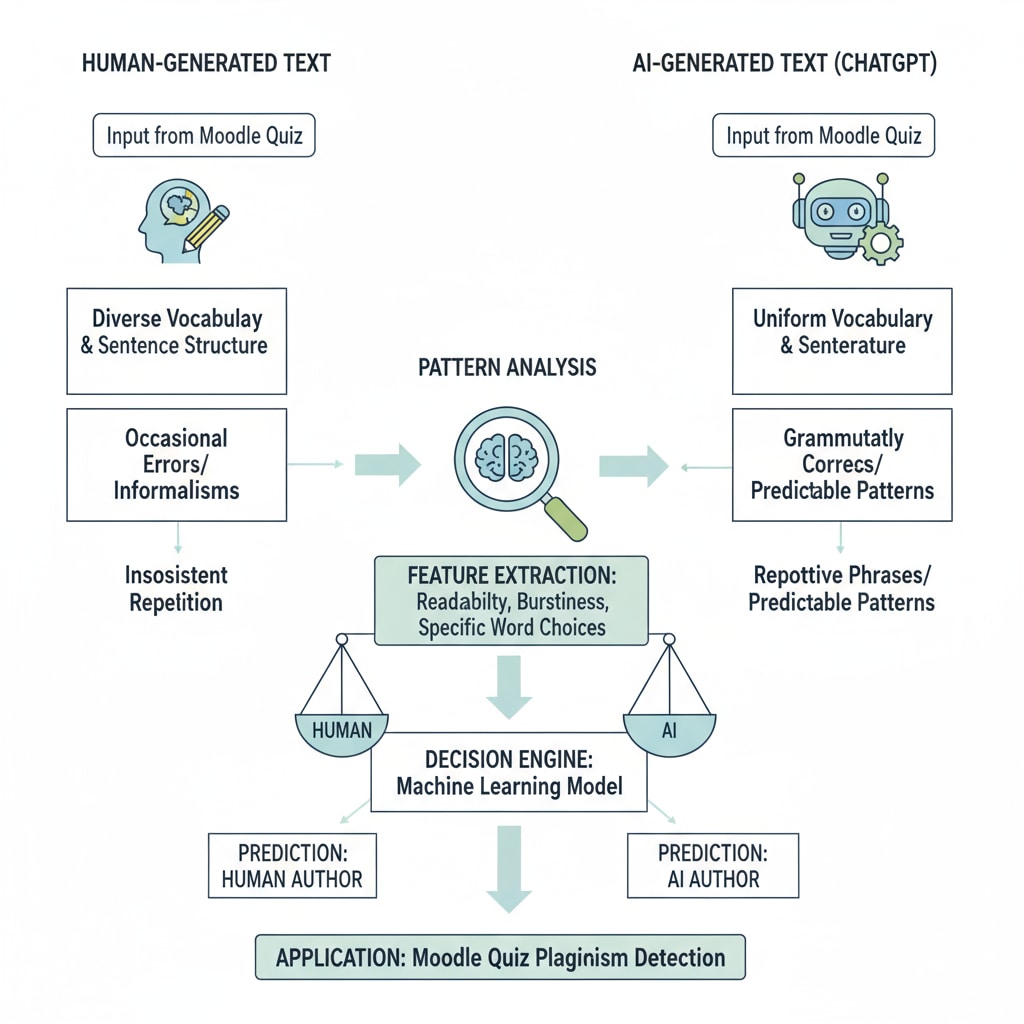In the digital era, the issue of students using ChatGPT in Moodle online quizzes has emerged as a significant concern. The combination of Moodle, online quizzes, ChatGPT, and screenshots is at the heart of this discussion. With the widespread availability of AI technology, educators are facing new challenges to uphold academic integrity.

The Rise of ChatGPT in Moodle Quizzes
ChatGPT has become a powerful tool that some students are tempted to use during Moodle online quizzes. Its ability to generate seemingly well-written answers quickly is appealing. For example, a student might copy a quiz question and paste it into ChatGPT, receiving a ready-made response. This trend is growing, as reported by Educause, which highlights the need for better detection methods.
Technical Detectability of ChatGPT Use
Detecting ChatGPT use in Moodle quizzes is a complex task. There are some technical indicators that educators can look for. One aspect is the writing style. ChatGPT often produces answers with a certain uniformity. Additionally, the speed at which answers are submitted can be a clue. If a student answers a difficult question in an unreasonably short time, it might raise suspicion. Tools are being developed to analyze text patterns and identify if they match those typically generated by ChatGPT.

However, these detection methods are not foolproof. ChatGPT’s responses can vary, and students may try to rephrase the answers to avoid detection. As a result, educators need to be vigilant and use a combination of techniques.
Educational Impacts of ChatGPT Use in Moodle Quizzes
The use of ChatGPT in Moodle quizzes undermines the educational value of assessments. It does not accurately reflect a student’s knowledge and skills. When students rely on AI to complete quizzes, they miss out on the learning opportunities that come from grappling with the material. This can lead to a false sense of achievement and ultimately hinder long-term learning.
In addition, it is unfair to honest students who put in the effort to study and complete quizzes on their own. Academic integrity is a cornerstone of education, and maintaining it is crucial for the credibility of educational institutions.
Solutions to Maintain Academic Integrity
To address the issue of ChatGPT use in Moodle quizzes, educators can implement several strategies. One approach is to design quizzes that are more resistant to AI assistance. For example, include open-ended questions that require students to apply their knowledge in unique ways. Another solution is to increase proctoring, either through in-person supervision or online proctoring tools.
Educating students about academic integrity is also essential. By explaining the importance of honesty and the consequences of cheating, students may be more likely to refrain from using ChatGPT. As stated by the National Education Association, promoting a culture of integrity is key.
In conclusion, the use of ChatGPT in Moodle online quizzes is a complex issue that requires a multi-faceted approach. By understanding the detectability, educational impacts, and implementing effective solutions, educators can work towards maintaining academic integrity in the digital age, all while considering the relationship between Moodle, online quizzes, ChatGPT, and screenshots. Readability guidance: This article uses short paragraphs and lists to summarize key points. Each H2 section provides a list of relevant ideas. The proportion of passive voice and long sentences is controlled, and transition words are used throughout to enhance readability.


